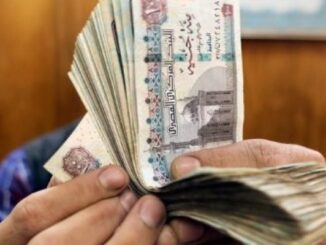
By: Abdel Hafez El Sawy*
– The general features of the budget
– The economic burdens
– The social burdens
The Egyptians had received a number of negative economic decisions before the government presented its financial statement to the House of Representatives (parliament) for the budget of the new fiscal year (2016-2017) on May 22. These decisions included:
• The announcement of the decision of Abdel-Fattah Al-Sisi’s approval of an agreement whereby Egypt will get a loan of $ 25 billion from Russia to finance the construction of a series of nuclear reactors, which leads to increasing the external public debt by about 50% at once.
• The second decision was related to one of the essential commodities, namely, drugs, where the Egyptian government has made a decision on increasing the prices of medicines that are less than thirty pounds by 20%, resulting in a state of discontent among the popular and poor communities, especially those that do not enjoy any protection from the health insurance programs.
The budget of the fiscal year 2016-2017 is the first to be discussed by the House of Representatives after the military coup in Egypt in July 2013, as the budgets of the past two years used to be adopted without the existence of a legislative authority. But the statements of the Speaker of the Parliament, Ali Abdel-Aal, about not allowing MPs to discuss anything related to the monetary policy of the government were shocking. It is assumed that the authority of the budget approval is one of the main functions of the members of parliament, and they (MPs) should not be subjected to any restrictions concerning the direction of criticism to the government, or demanding amendments to its economic policies in general, including the monetary policy.
Egypt’s (2016-2017) budget comes amid an economic downturn, particularly with respect to the financing gap and the deficit of dollar resources. A recent Standard & Poor’s credit rating assessment stated that Egypt stands at B- with a negative outlook (previously stable). This assessment was followed by reducing the future outlook of the public sector banks in Egypt (Al Ahli, Egypt, and Cairo) in a similar manner. Looking at the financial statement of the Egyptian Minister of Finance, Amr Garhi, in front of the House of Representatives, we find that there is a range of economic and social burdens that will be imposed on the Egyptian society during the next year. We will point out some of these burdens, after discussing the general features of the draft budget for the fiscal year 2016-2017. (The fiscal year begins in Egypt on the first July)
The general features of the budget:
The financial statement for the draft budget has indicated that the total expenditure is estimated at 936.1 billion Egyptian pounds ($ 105.4 billion), and that the total revenues are estimated at 631 billion pounds ($ 71 billion), and that the overall budget deficit is estimated at 319.5 billion pounds ($ 35.9 billion).
With regard to expenditure, it included wages by about 228 billion pounds, and the interest of the public debt by 292.5 billion pounds. The allocations for subsidies, grants, and social benefits reached 210.3 billion pounds, education 103.9 billion pounds, health 48.9 billion pounds, non-oil materials 66.1 billion pounds, and the energy subsidies 35 billion pounds.
With regard to the revenues, the financial statement reported that the general taxes are expected to achieve 209.2 billion pounds, the sales tax 172.3 billion pounds, the customs tax 29.5 billion pounds, while the grants are expected to reach about 2.2 billion pounds in revenues.
The economic burdens:
• The increase in the public debt: The financial statement indicated one of the most important economic issues, that is haunting the Egyptian State at this stage, namely, the public debt. The government public debt is estimated at about 3.1 trillion pounds, representing 97.1% of Egypt’s GDP. However, the financial statement displays, here, the public debt in the narrow sense. According to the data of the Central Bank of Egypt, the public debt includes the government debt + the debt of the economic bodies + the debt of the public investment bank, which is known as the public debt in the broad sense. In this case, the public debt will be worth 3.46 trillion pounds, exceeding the value of the GDP, which was estimated by the Ministry of Planning at about 3.3 trillion pounds by the end of June 2017.
The result of the increased public debt was the debt interests’ acquisition of an amount of 292.5 billion pounds, which is more than the total wages allocations (228 billion pounds) and the health allocations (48.9 billion pounds). In addition, the way of the Egyptian budget preparation only includes the debt interest value within the budget spending, while the value of the debt payments are included in the expenditure, although they represent a burden on the state treasury. This means that the debt and its interest, to be borne in 2016-2017, will be 548.8 billion pounds.
• The increased tax collection: At a time when the financial statement expects a decline in tax revenues by the end of June 2016 by sixty billion pounds compared to the value estimated in the budget of 2015 to 2016, we find that the draft budget for the fiscal year 2016-2017 overstates the tax revenue estimates, reaching 433 billion pounds, an increase of seventy billion pounds compared to what was expected by the end of June 2016.
It is worth mentioning that the economic activity is suffering from a significant decline, particularly the private sector activities, where Bank of Dubai index estimates pointed to a decline in activity of the non-oil private sector in Egypt for the seventh month respectively last April. This means that the performance of the economic activity is not likely to impose an increase in taxes, as well as the government’s intention to apply the value-added tax this year.
• Funding investments via debts: At a time when the financial statement announces the allocation of 107 billion pounds for public investment, by up to 11.4% of total public expenditure, we find that the financing of these investments depends on loans by 43 billion pounds, which means that investment has become an additional burden on the national economy, as a major part of these investments are for infrastructure projects with no return to pay back the debt burdens.
The social burdens:
• Decline in support for the poor: At a time when the 2016-2017 draft budget maintained the support of exports with the same allocations of the last fiscal year by about 4.6 billion pounds (a support from which major businessmen of the private sector benefit), the support allocations for the social housing sector fell to 1.5 billion pounds against two billion pounds last year. This makes the citizen refrain from trusting what is usually announced of opening projects for the housing of the poor in new cities.
• Negligence of Upper Egypt: At a time when the Upper Egyptian governorates suffer from high poverty rates of up to 70% of the total population, as the Assiut governorate, we find that the allocations for the support of Upper Egypt’s development remain as they have been for years, an amount of 200 million pounds, which is allocated for supporting projects in the new areas. However, these funds have not been activated or disbursed over the past years due to the absence of new projects there, which explains the phenomenon of Upper Egypt’s being a population and employment expeller.
• The inflation eats up the salary increase: At a time when the draft budget allocated an increase in the item of wages by 7.6% during the 2016-2017 fiscal year, we find that it did not take into account the inflationary burdens, where the inflation rate reaches about 10% on average during the current year. In addition, the tax revenues in the draft budget include an expected increase in the amounts received from the salaries tax for up to 32.7 billion pounds, compared to $ 28.7 billion pounds that were expected for the year 2015-2016. This means that there is an expected increase of four billion pounds, by 13.9%. In fact, the increase in wages had to keep pace with inflation, or at least not to broaden the imposition of more taxes on the salaries of employees.
*Abdel-Hafez Al-Sawy is an Egyptian economist. He has many economic writings, including The Post-Revolution Balance, the Employment of Zakat Funds in the Muslim World, A Development Vision, and the Egyptian Economy between the Taxes and the Zakat.
(Published in Al-Jazeera on Wednesday, June 6, 2016, and translated for MEO)



